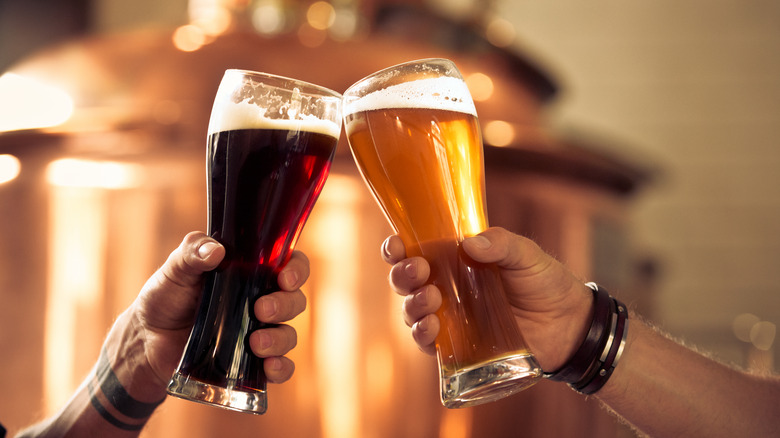A New Report Shows Climate Change Will Have Costly Effects On Beer
Sipping that IPA, stout, or light lager may not be as enjoyable in the next few years. Rising temperatures, shorter seasons, and changing weather patterns impact hops, which are integral to any beer. While consumers might not see an immediate impact in flavor and cost, the outlook may not be as palatable.
Beer and grain cultivation have been tied together for 12,000 years. As one of the oldest and most popular beverages on the planet, beer cannot be made without grain. And if farmers can't produce a quality and substantial starting product, the classic beverage will be altered. For now, that beer might have a clean, crisp taste, but a few years into the future, it might taste different.
Per a study published in Nature Communications on October 10, climate change is impacting hops crops. Issues including shortened seasons, early harvests, and temperature fluctuations change the hop's flavor and bounty. As Miroslav Trnka, a bio climatologist at the Global Change Research Institute of the Czech Academy of Sciences, told ABC News, these particular crops flourish in region specific areas and flounder in other locales. Without being able to transport crops to a more favorable growing space, the hops industry is predicting that future crops will have more bitter notes. Given that beer drinkers want every bottle to taste the same, the altering the key ingredient might put a tear in some of those beers.
Could rising beer costs get people more invested in climate change?
When Nature Communications warning that climate change could impact hop production, people might have looked at beer differently. Beyond the potential change in flavor, lower crop yields will impact overall costs. If breweries spend more on sourcing quality hops, that cost has to be offset somewhere. While rising food costs can create changing consumer patterns, it remains to be seen if people will skip sipping that cold one.
There have been previous warnings about climate change impacting beer, too. A 2018 study on barley, another key ingredient in beer, raised concerns about the crop production and its impact on beer costs. Even though there were spirited conversations about drinking more beer at the time, the concept seemed to be pushed aside. But climate change has a ripple effect, and higher costs to changes in taste are just some of the realities tied to the environmental issue.
Even though the latest warning might have some people running to the store to stockpile their supply, it might get people willing to be active against climate change. Many people aren't ready for a world without beer.

